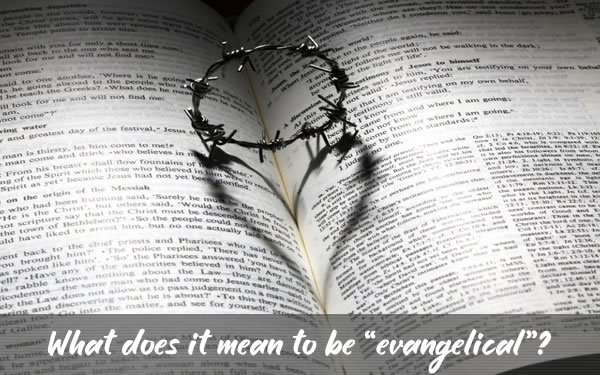To be evangelical means to believe and live for Christ in the spirit of the New Testament Gospel, celebrating God’s great love and grace, through faith in Christ as Lord and Saviour.
- Evangelical Christianity is about spiritual conversion, and Christian consecration and discipleship.
- It is about believing that salvation is found in Christ alone, and that believers should share the good news of Christ both in word and in action.
- It places much emphasis on the saving work of Christ on the Cross, and the critical importance of Christ’s resurrection.
- Being evangelical is about devotion to Christ, and prayerfulness.
- It involves a high level of commitment to Christian fellowship and the church.
- To be evangelical means to recognise the divine inspiration and authority of the Bible, and to make much use of it in preaching, teaching, study and devotion.
- Evangelical Christianity is about holding to historic biblical Christianity, and to safeguard that many evangelical churches and organisations have a statement of faith.
Evangelical Christianity varies greatly in its practices and tone.
At its best, evangelical Christianity transcends denominational distinctives, and cultural divides, and many differences over secondary matters. Evangelical Christianity shares many of its characteristics with various other Christian streams, especially with regard to the basics of Christian faith and life, but nevertheless it has its own distinctive flavour. At its core, evangelical Christianity has a spiritual Gospel dynamic which transforms individual lives, and then flows over into relationships, family, churches, and society.
At its core, evangelical Christianity has a spiritual Gospel dynamic which transforms individual lives, and then flows over into relationships, family, churches, and society.
The word “evangelical” points us to the heart of the New Testament message. The word is derived from the New Testament Greek word for “Gospel” (euangelion), which means “good news”: the good news that the living God has sent his Son into the world, to reveal God, to die for our sins, and to rise from the dead, and that when people place their faith in Christ they receive forgiveness, newness of life, the presence of the Holy Spirit, and confidence for eternity.
The word “evangelical” was used during the Reformation, to indicate an emphasis on the Gospel of grace and on the authority and use of the Bible. It was very much associated with the eighteenth century revivals in Britain and America, and the nineteenth century humanitarian improvements in British society, and the nineteenth and twentieth century global expansion of Protestant Christianity – and not least the background to New Zealand’s Treaty of the Waitangi.
Within the church, the word “evangelical” serves primarily an in-house theological term. Outside the church, the word “evangelical” is less useful, because it is so often misunderstood. It is often best to express its meaning using other words.
The New Zealand Christian Network is associated with the World Evangelical Alliance, which seeks to express the faith of about some 600 million evangelical Christians worldwide, across a vast diversity of different nations, cultures and denominations. In some 130 countries, there is a national evangelical alliance affiliated to the WEA. From time to time, the WEA calls a General Assembly. The last one was in 2008. The next one is in November 2019, and it will be attended by several representatives from New Zealand.









0 Comments